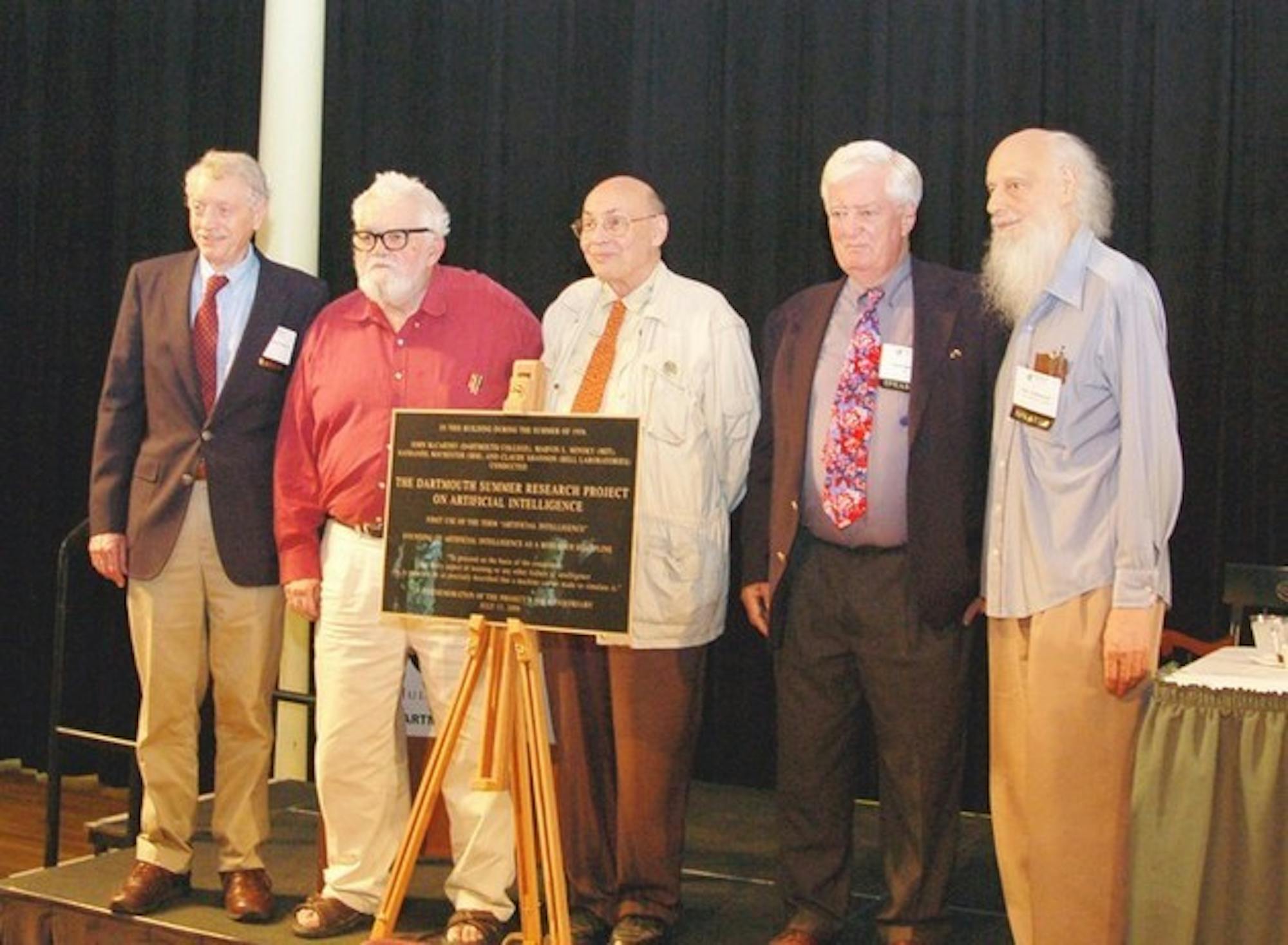The three-day program, which lasted from Thursday through Saturday, consisted of over 40 presentations including a few retrospective lectures about the history of the field, but primarily focused on the future, with sessions entitled "The Future of AI" and "The Future of the Future."
The future of artificial intelligence has attracted the interest of many organizations, including military bodies. The Defense Advanced Research Projects Agency, the primary research and development agency of the U.S. Department of Defense, contributed $200,000 to the conference.
The field has come a long way in 50 years. A half century ago, the scientists were working on making computers act like people, a now-common idea that was groundbreaking in 1955 when 27-year-old Dartmouth mathematics professor John McCarthy led the charge for a gathering on the subject in Hanover the next summer.
"An attempt will be made to find how to make machines use language, form abstractions and concepts, solve kinds of problems now reserved for humans, and improve themselves," read the proposal from McCarthy and three other scientists for a Dartmouth Summer Research Project on Artificial Intelligence. "We think that a significant advance can be made in one or more of these problems if a carefully selected group of scientists work on it together for a summer."
But the wonders of the human brain have proven difficult to replicate, and many of the same problems they discussed in 1956 still exist today.
"They did some of the hard stuff early, but some of the easy stuff it's almost impossible to accomplish," said philosophy professor James Moor, the conference's organizer, said.
"[Artificial intelligence] requires so much background knowledge that you accumulate over your lifetime that you take it for granted," Moor said. "You say to the machine 'it's a stairway,' that's fine, but it doesn't think about going up or down."
Nevertheless, the original Dartmouth conference brought together key people to identify the scope of possibilities for "artificial intelligence," a field that did not even have a set name before McCarthy coined it in the 1956 conference title.
Even then, the field showed promise. Attendees Allen Newell and Herb Simon developed a system they called "Logic Theorist" that reasoned one particular mathematical proof better than its designers, proving that computers could out-think humans.
"It felt like it was magic," Ray Solomonoff, one of the original group who returned to Hanover this weekend, said. "The idea that a machine could do things that before we thought only humans could do, that was sort of a breakthrough."
Since then, computers have tackled calculus, chess and even had some success at translating languages. There are robots that can vacuum without human assistance.
Solomonoff, who at 80 lives in Massachusetts and is still working to make machines learn creatively, said he often thinks about the possible dark side of technology that could make weapons easier to produce.
But he hopes people will manage these dangers and that AI could complement human knowledge and "solve really hard problems we haven't solved," like curing cancer or AIDS.
Another illness that science is working to curtail is Alzheimer's disease, which claimed the lives of Nathaniel Rochester and Claude Shannon, two of the four scientists who proposed the Dartmouth Conference, according to biographies displayed in Baker-Berry Library.
For Solomonoff, who said he still keeps in touch with some of the 1956 conference attendees, the most interesting part of the 2006 conference was hearing the latest developments in the field from the younger scientists and postdoctoral fellows who gave most of the presentations.
Moor said the idea was to "kind of pass the torch," but Solomonoff said that he is not ready to stop working anytime soon.
"I expect to get a lot of progress in the next few years," he said.




